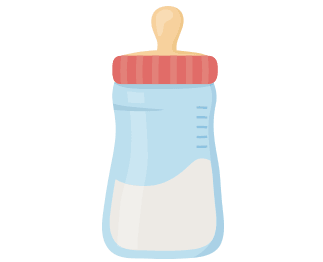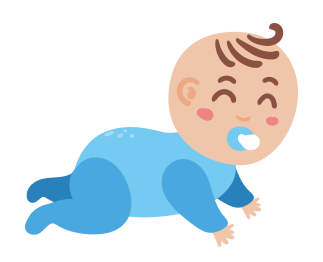How To Raise A Smart Baby
Your baby's brain is a powerhouse of learning, ready to absorb information from the moment they're born. Early experiences, such as interactions with caregivers, exposure to language, and access to stimulating environments, have a profound impact on brain development and future academic success.
As a parent or caregiver, you play a crucial role in nurturing their intellectual growth. Here are some easy and enjoyable ways to encourage your little one's development.
Understanding Baby Smarts: Babies are born with an incredible capacity for learning. During their early years, their brains form millions of connections every second, shaping their future abilities. Your interactions with your baby determine which connections are strengthened, influencing their cognitive and social skills.
Building a Strong Bond: Creating a secure and loving environment is key to your baby's development. Skin-to-skin contact, eye contact, and responding to their cues all contribute to building a strong bond. This sense of security lays the foundation for their cognitive and emotional well-being.
Modeling Healthy Relationships: Your relationship with your partner and others sets the tone for your baby's sense of security. Healthy friendships and partnerships provide a stable environment for your baby to thrive.
Talking and Narrating: Talking to your baby is one of the most effective ways to stimulate their brain. Narrating your day and using descriptive language helps build their vocabulary and language skills.
Rhyming and Singing: Rhymes and songs are not only fun but also aid in language development. They help your baby learn the sounds and rhythms of language, laying the groundwork for future speech.
Face Time and Emotional Expression: Making faces and showing emotions helps your baby learn to interpret facial expressions and understand emotions. This skill is essential for building strong social and communication skills.
Limiting Screen Time: Excessive screen time can hinder your baby's development. It's important to limit screen time and prioritize activities that engage their senses and promote interaction.
Encouraging Movement: Giving your baby plenty of opportunities to move freely is crucial for their physical and cognitive development. Tummy time and active play help strengthen muscles and improve motor skills. Babies should not be restrained in seats, strollers or swings for more than 1 hour per day.
Pointing and Describing: Encouraging your baby to point and describe objects helps develop their communication skills and fosters joint attention, where you both focus on the same thing.
Reading Together: Reading to your baby from an early age promotes language development and strengthens your bond. It also sets the stage for a lifelong love of reading.
Healthy Eating Habits: Eating meals together as a family promotes healthy eating habits and provides a supportive environment for your baby's social and emotional development.
Positive Discipline Techniques: Using positive discipline techniques, such as setting clear limits and offering praise for good behavior, helps your baby develop self-control and social skills.
The small, everyday interactions that provide a nurturing and stimulating environment for your baby, including plenty of interaction, reading, and play, help support their cognitive development and stimulate your baby's intelligence to set them on the path to lifelong learning and success.






